How to Grow Your Own Microgreens | Fast and Easy Gardening
Microgreens are one of the quickest, easiest and most nutritious crop that can be grown.
They can be grown indoors in 1-2 weeks and are unbeatable in flavor. Being harvested during the early stage of plant growth, they contain the dense nutrition that was stored in the seed and are so quickly grown that they require very little care.
They are a must grow for anyone interest in healthy food.
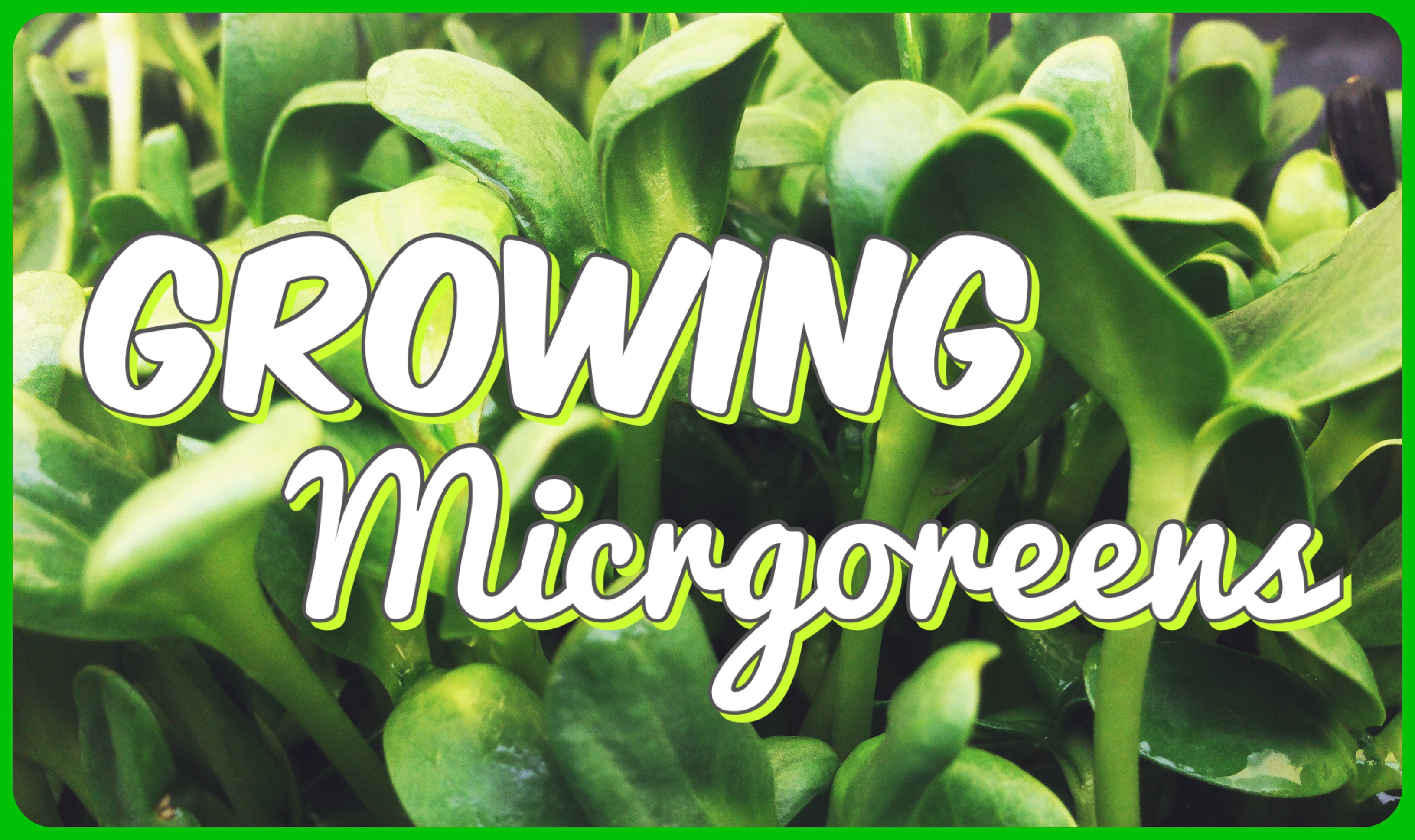
Grow Your Own Greens
Growing your own food doesn't mean you have to own land or even have access to outdoor growing areas. You can easily produce your own microgreens quickly, easily and with very little investment.
The materials are easy to find and the results are impeccable. Growing your own greens is one of the most empowering steps you can take to seize control of your health care. Green leaves are the closest you can get to eating sunshine!
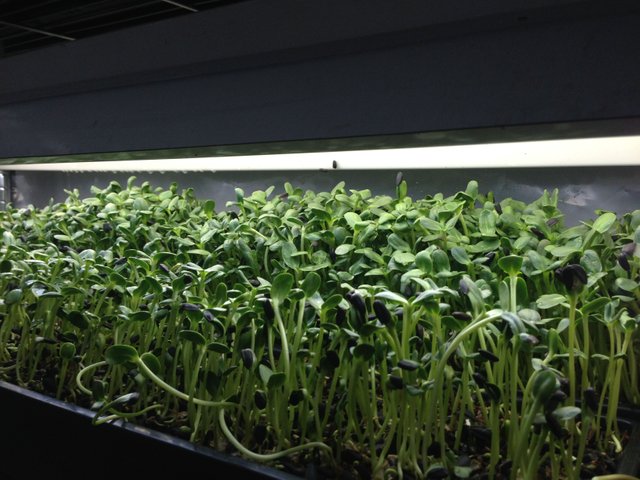
Ready to Harvest Sunflower Greens (aka Sunnies)
“These tender baby-greens are biogenic food at its best; biogenic meaning ‘life generating’, food by the capacity of their life-force, to generate ‘life-force’ for us.”
– Isabell Shipard, How Can I Grow & Use Sprouts as a Living Food?
Nutrient Dense Food
Thinking in terms of quality over quantity makes sense with food.
We of course need calories to keep us going, but the real gems are vitamins, enzymes, minerals and phytochemicals (plant chemicals) that support and nourish our body on the deepest levels.
Microgreens are busting with enzymes (the worker bees that "make things happen") because of the fresh and active growth. As the seed transforms into a plant the nutrition stored in the seed is activated and increases while the minerals are made more accessible due the chelation.
Microgreens arepacked with vitamins too. Chlorophyll, carotene and other compounds act as potent antioxidants to help protect the cells against damage.
Pea Shoots Have:
Seven times more vitamin C than blueberries.
Eight times more folic acid than bean sprouts.
Four times more Vitamin A than tomatoes.
If that wasn't awesome enough, pea shoots are made up to 69% of high quality bioavailable protein. Check out the table below for your geeking pleasure.
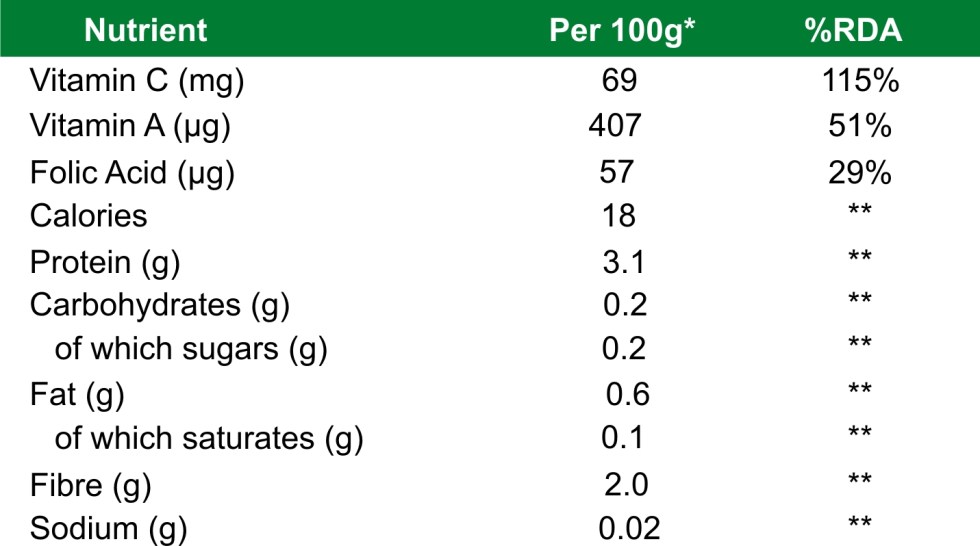
(source at bottom)
Seeds
The most important thing to get started is fresh high quality seeds.
There are many varieties of microgreens you can grow, but I have found pea shoots to be my favorite. Organic seeds are best, but the most important part is high germination (the fresher the better). There are many options for microgreens including most vegetable seeds. The main difference between garden planting and microgreens is time until harvest and density of planting.
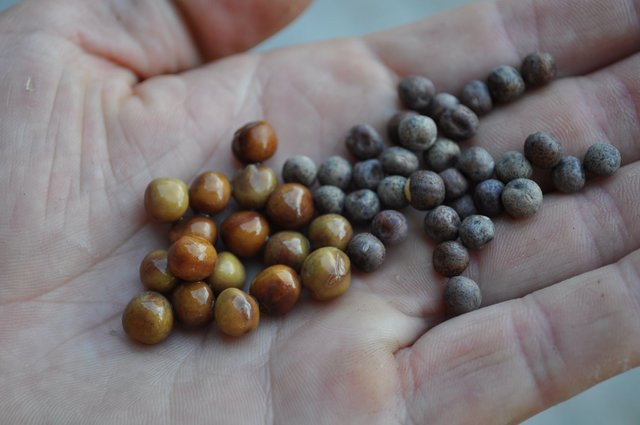
Dry and Soaked Field Peas
For a standard 10"x20" tray (most common gardening tray) you will need 2 Cups of peas or sunflower or around 3 Tbsp for small seeds like radish or broccoli. For peas and sunflowers it is best to soak for 24 hours to give germination a jump start. Field peas or green peas can be used and may be sold as cover crops. We seed austrian winter peas as a cover crop and eat the shoots when they emerge.
All garden variety pea greens (pisum genus) are delicious, just don't eat the ornamental sweet peas as they are toxic. Think of the tender snow peas and you'll get an idea of how tasty these greens are. Smaller seeds like kale or broccoli are spread dry on top of the moist medium.
Now we'll walk you through how to plant our favorite microgreen PEAS.
Steps to Planting Peas as Microgreens.
- Soak seeds 24 hours
- Drain seeds
- Prepare tray with moist medium
- Seed the tray evenly so seeds are touching but not overlapping
- Cover and keep moist for 2-3 days. Best results with weighted tray adding pressure to sprouts.
- Keep watered and expose to sunlight or full spectrum light
- Harvest
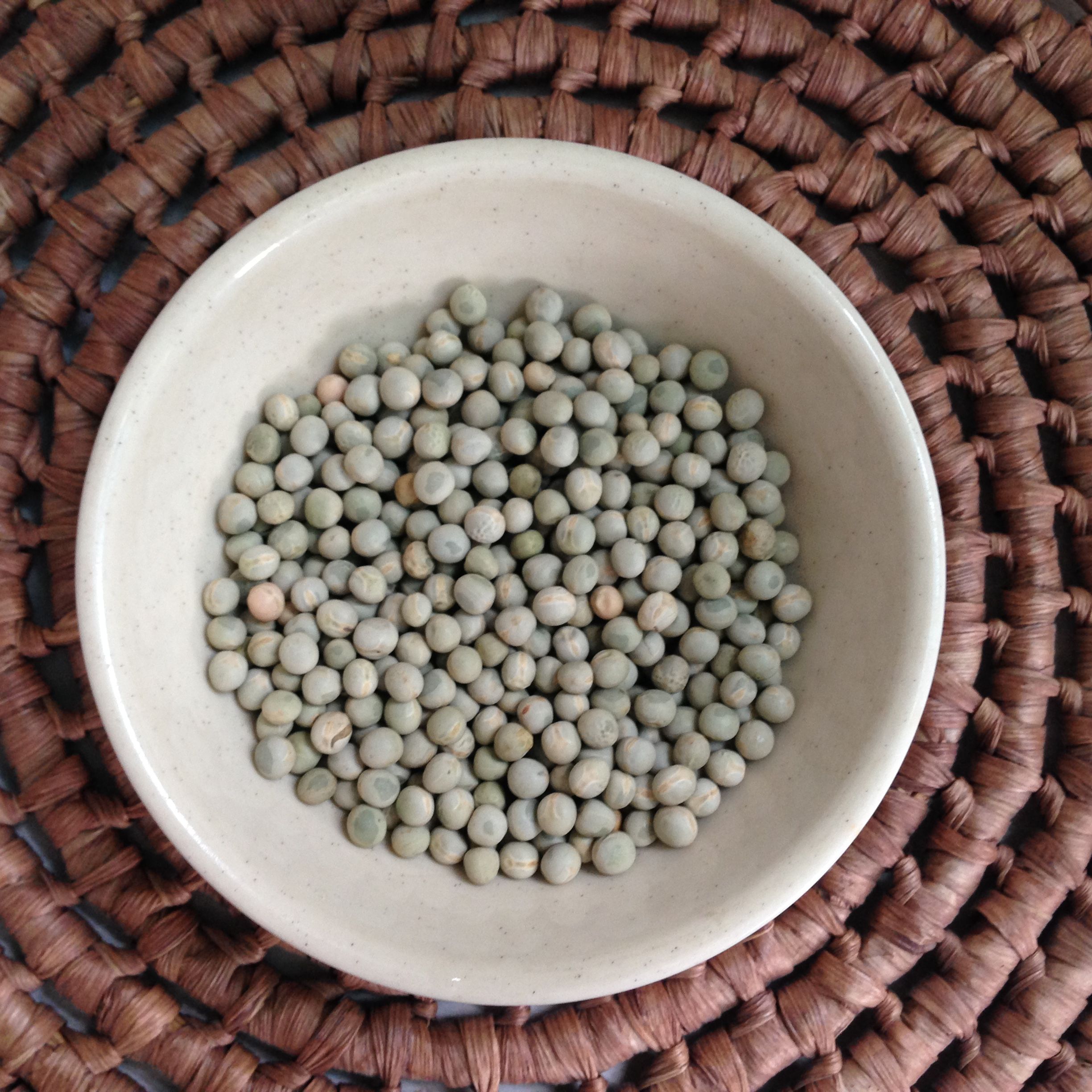
Dry Green Peas Before Soaking
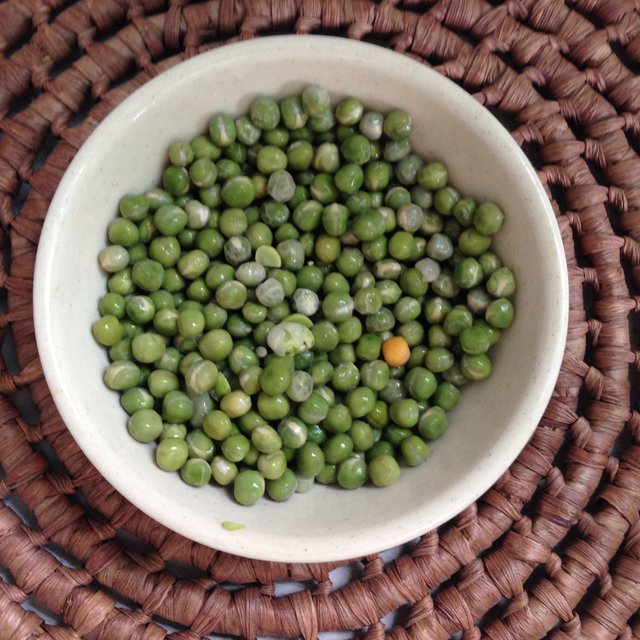
Green Peas After Soaking
Planting
Planting is most often done in the standard 10x20 tray, but you can grow them in an outdoor garden or any tray such as plastic clamshells from berries or fruit cases. 1-2” is all you will need for micro greens. We prefer the 2 part 10x20 trays as they have a reservoire that holds water so watering needs are reduced.
Microgreens can be planted in a variety of mediums including native soil, compost, vermicompost and coir (a coconut byproduct). I find coir to be the most convenient and easy to use, although it is a nutrient void medium. Others prefer to use compost to boost fertility, but I honestly use straight coir with satisfactory result and simply feed the spent tray to our worms to create high quality vermicompost.
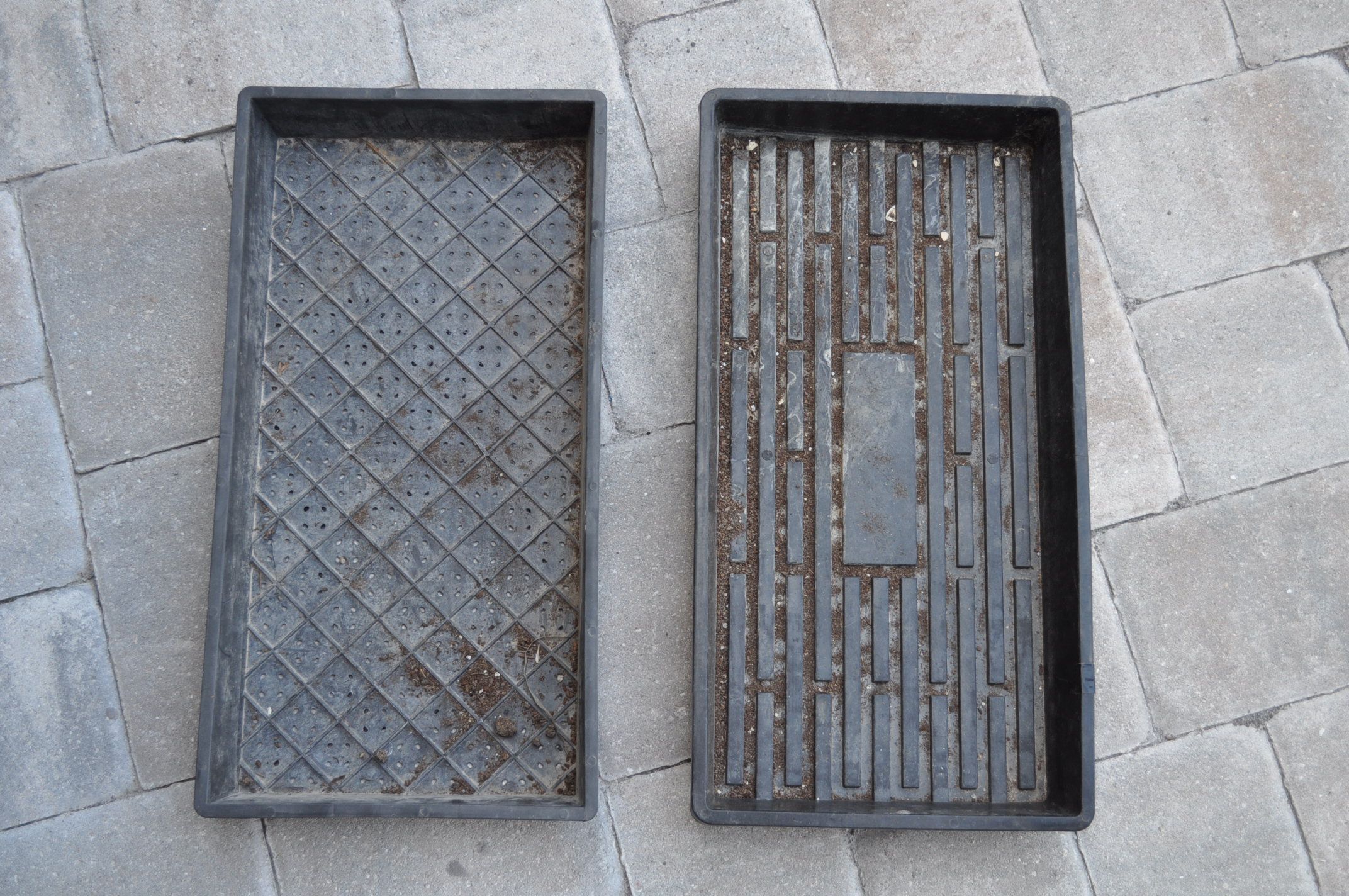
2 part 10x20 trays we use
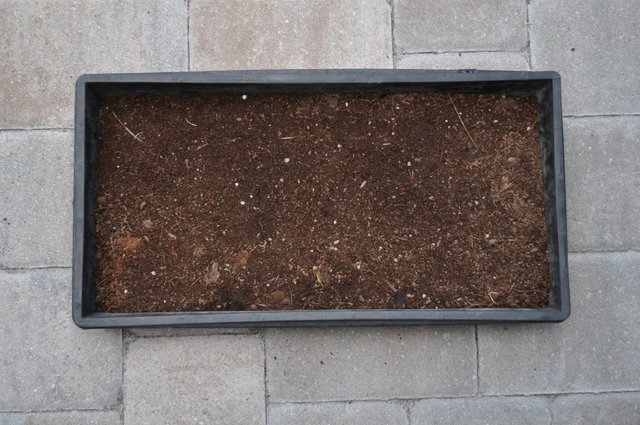
10x20 Tray with Coir
The medium with help retain moisture and give the roots a home.
Because of the short lifecycle it is unknown weather the seeds have time to take up and use much of the nutrition in the medium. Many folks swear by using the best high quality compost and microbes. I tend to use coir with a little kelp for micronutrient feeding of the crops. The seed are sprouted and eaten within 2 weeks and for us I'm not sure how much difference it makes.
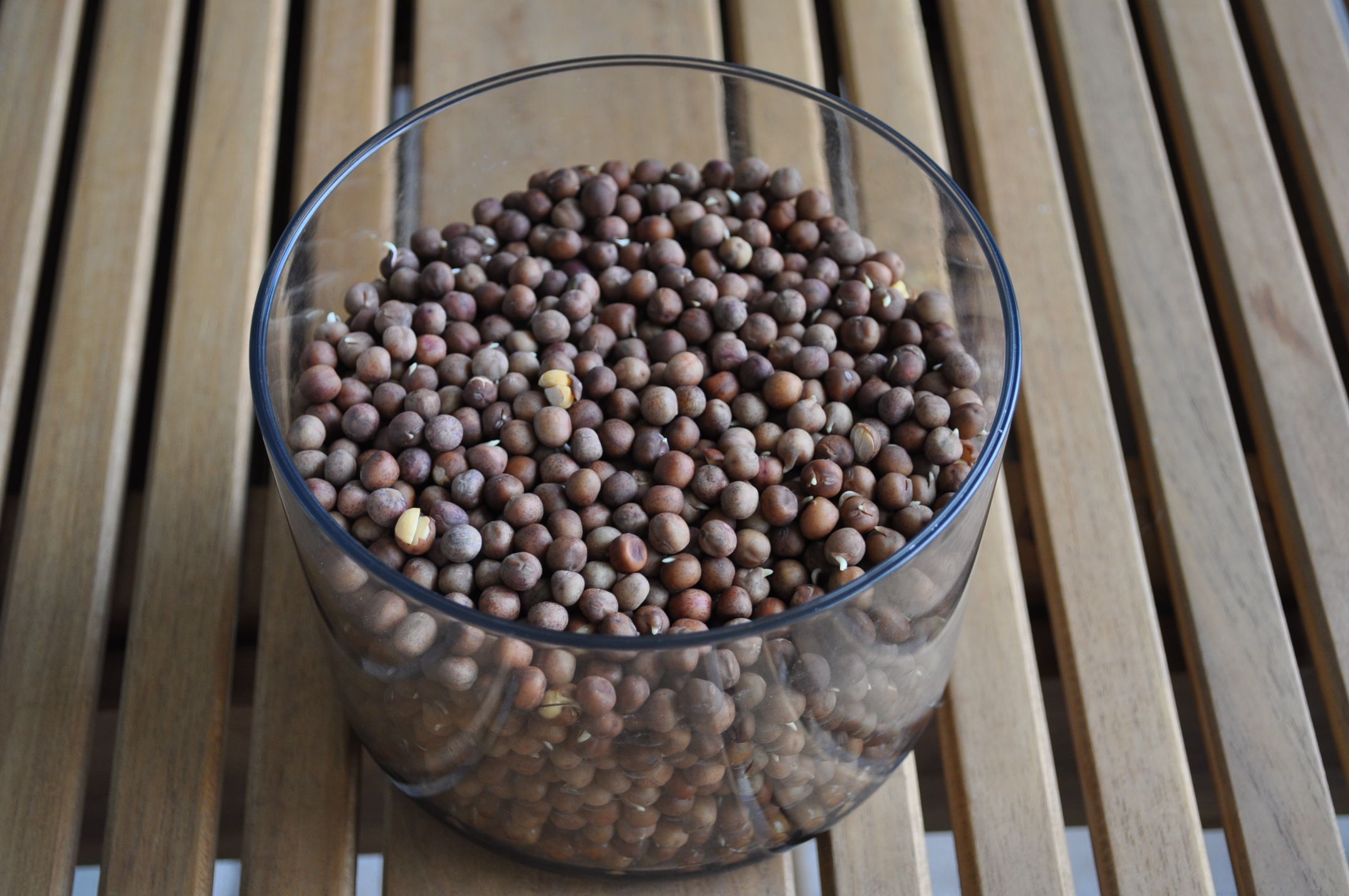.jpeg)
Peas for the Planting
For peas and sunflowers, drain the water before planting. The goal is to have seeds touching but not overlapping. This helps maximize space usage without overcrowding the tray. Airflow is crucial and too many seeds inhibit this.
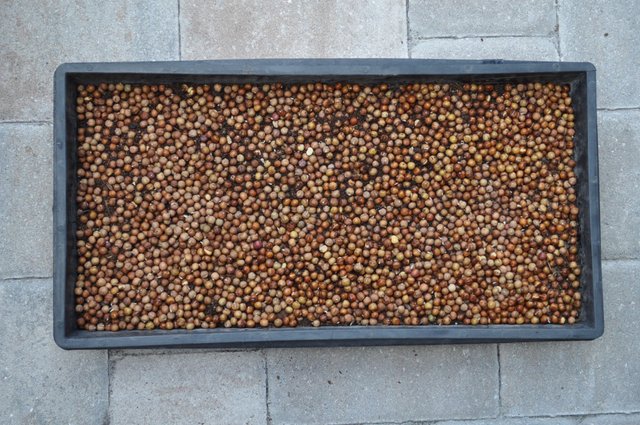
Tray Seeded with Field Peas
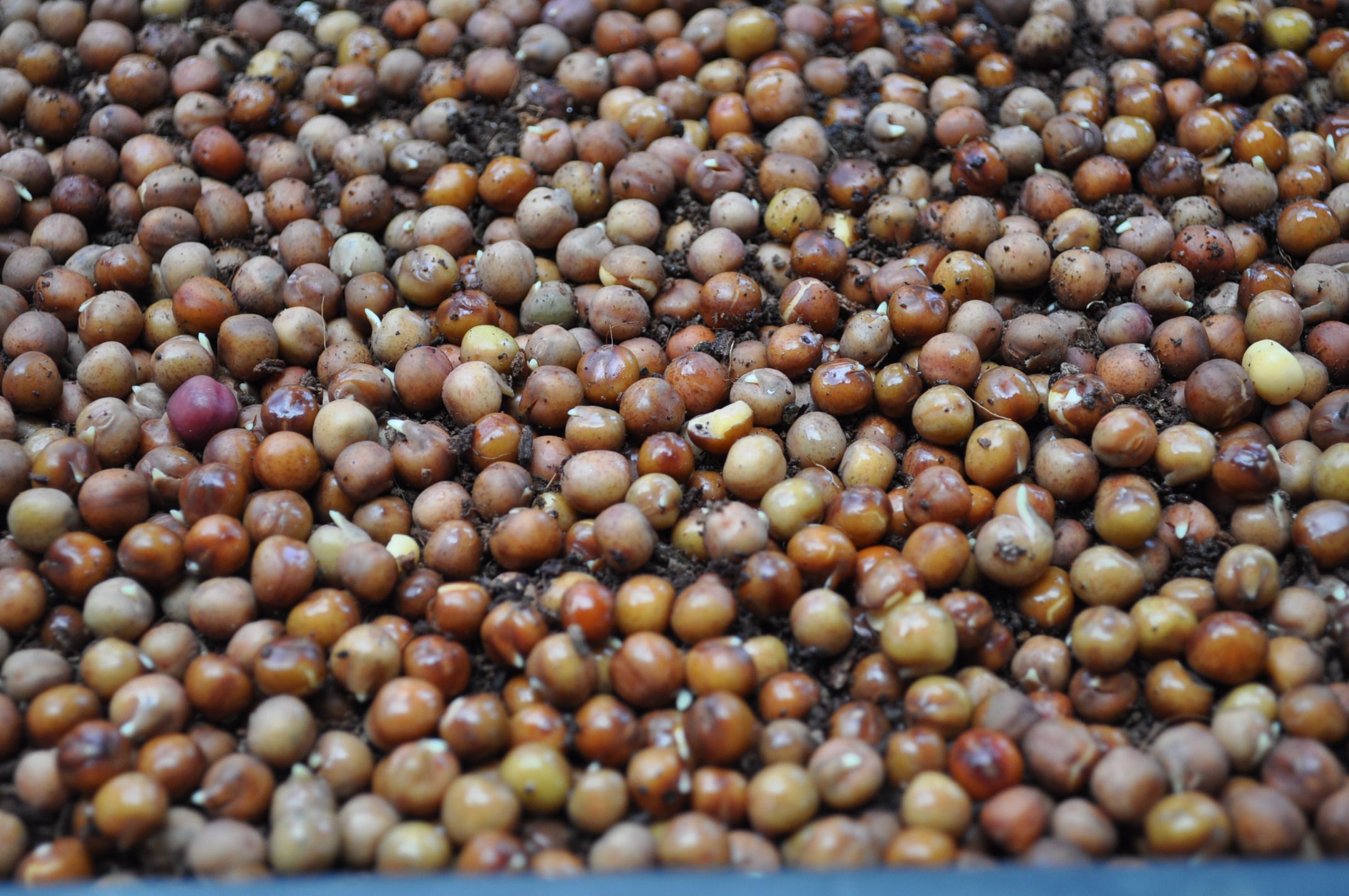
Just a wee denser than ideal (I got too excited when soaking).
Cover Seeds
The best method to cover seeds is putting another tray on top. This excludes light, retains moisture and, if the tray is full, it can help make thicker and juicier peas (by struggling they get stronger). 1-2 days of coverage is sufficient.
Keep Watered
The amount of water needed depend on heat, airflow and medium. In the 2 part system, I simply lift the top tray to feel the weight. If it’s feeling light, I pour water on the solid tray below, the slotted tray will wick water as needed. Otherwise a mister or gentle watering can will work. As there isn’t much medium for the roots, check water content regularly.
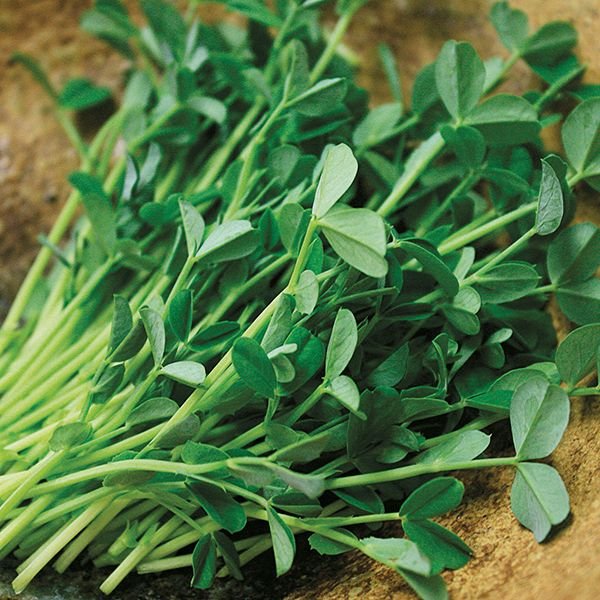
Lighting
Microgreens need light to “green up”, the chlorophyll they produce is so great for us to consume, although some prefers blanched (grown in dark) peas or popcorn shoots as they are sweeter than when grown with light.
Light from a window is sufficient, outdoors is great (but dries out faster) or full spectrum bulbs will also work. Don’t fret too much over this, just remember that they are a quick crop eating WAY before others would be ready to transplant. Leggy microgreens are fine.

Sunnies Ready for Harvest
Harvest
For peas and sunnies you can harvest when they are as short as 3” but much taller that 6” and they get tough. This is easily done by grabbing a handful and cutting with a serrated knife or scissors 1/2” up from the medium. For sunnies they should be eaten before the true leaves (second set) emerge as they get overly bitter. For sunflowers you may have to remove shells (another reason I prefer peas). Peas have weak regrowth that can also be eaten.
You can harvest as needed or all at once. Most microgreens will keep for at least 3 days in a sealed container in the fridge.
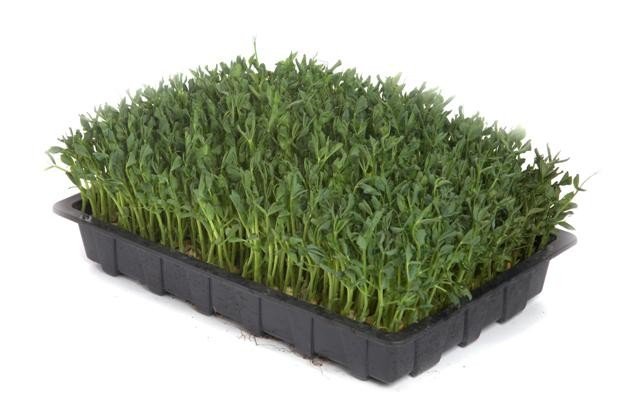
Compost and Repeat
This cycle is rewarding as you can just keep the greens coming.
If you plan it well you can have fresh greens all year! Once you’ve harvested the tray, take the root mass and feed it to worms, chickens, compost it or use it as a layer for sheet mulching or raised beds.
Hope you enjoyed this intro to Microgreens. We always love to hear feedback and things YOU would love to see a post on!
Let me know if you’d like to buy a copy of my Book Sprouts Live Well With Living Food!
Sources:
http://markitonutrition.com/pea-shoots/
This post was written by a member of the #ecotrain, a conscious-seeking group of souls on Steemit.

This is just about everything I can imagine I'd need to know about microgreens. They are incredibly expensive at Whole Foods, you know, so I'll be giving this a go. I've done the wheatgrass thing but it's radish and brocolli sprouts that I like in my salads.
Glad to hear that you’ll be giving it a go! That’s our goal 😊💚🌿 yes they are so expensive! This way is much more affordable and I think you’ll be surprised at how easy it can be. Please keep us posted!
Great post @mountainjewel !
Microgreens are one of the easier things one can start growing today, it doesn't require any special equipment (although you can get some for cheap) and it provides tons of beneficial nutrition's as only such fresh and green food can provide!
Thank you very much for sharing, I hope it will encourage everybody to try it out...!
Your psychedelic microgreen fractal is making me want to try!
Please do, you won't regret it! You maybe will get hooked on it once you get going though.
Lol, will do than! I lile your way of thinking!
LOL go ahead!!! :)
On my way!
here we go.... :)
Very cool! Thanks, it is beautiful and motivating!
So true, living green food certainly is a potent and unique source of nutrition. Happy you're on board;)
and so extremely easy to grow!
It is amazing how a tiny seed has all the needed nutrition's inside of it to develop to a tiny plant.
Its like a baby would be born and start eating only after a few weeks of life....nature you are amazing!
Great informative article and has encouraged me to start sprouting again .
Thanks very much for sharing
I love sunflower seeds. We use for our fodder and microgreens. We were using field peas for fodder also but when the pea husk falls off plant it starts to get slimy in the trays where with the micro greens in the soil it really isn't that bad. We are starting to use all the 1020 trays we used for fodder back in the day now for microgreens since we use a king crop now for fodder. It is amazing the price microgreens are selling for now. I have a small Samson green system we use in the house for micro greens and sprouts.
Nice to hear of you setup! I was happy of high price as I used to sell them to restaurants. But no reason we all can't grow our own eh? It becomes elitist when really it should be good EVERYONE has access to.
Are you feeding poultry or other animals on your forage system? I'd like to see it in action :)
Yes the poultry, cows, goats and hogs. I will have it back up and running again and will do a few articles on it. The poultry love the sunflower fodder and go crazy over it but you have to make sure they are getting enough grit or they will start to get more sour crop since it is fresh greens in their crop and it breaks down and rots fast. Not a problem with more free range or large area chickens but I did have a problem when I was feeding chickens in a pen. Just adding grit took care of it though.
These sprouts look wonderful. Love them in a salad or sandwich! Wonderful easy post to follow!
Aren't they just such a good addition to everything!!! Thanks for the praise.
How awesome! Id never heard of these little guys! With the nutrients in them, its a go for sure! And its easy and fast! Thanks for sharing! Very informative too! :)
Happy to share this great resource. Keep us posted as your journey into microgreens evolves.
You know, you have a bad habit of making me put my thinking cap on, lol. My disabilities limit my abilities to earn a living. But it seems like I should be able to figure out a way to use LED lighting & solar panels to set up a grow system in my basement where I should be able to produce hundreds of pounds of sprouting seeds per year. Perhaps more since I could grow year round. That would go a long way towards keeping the lights turned on!
Ahaha, I could use a break from my think cap.....
For sure you could do this @fernowl13! I've met folks who pulled in quite a good income from doing this in a basement/garage, and you could too. Best of luck in your endeavors. Feel free to return the favor and ask questions so I can put MY thinking cap on ;)
We have so much coconut here. Anything I need to do to prepare coir?
Awesome! I am so doing this today, I just need to eat fresh asap.
Heck yes. It's right now that greens are what my body craves. Hooray for immediate action, joyous sprouting.
Thanks for sharing the step-by-step process. I have been wanting to start gardening so my eyes are always drawn to the gardening post from all of the great Steemit gardeners and homesteaders.
I need to find some time to give this a shot.
Lovely to hear this @sumantranate. Sprouting and microgreens are a great and accessible intro to gardening. All the best on all your growing forays!